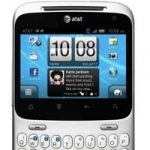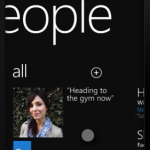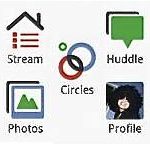'Life or Death' GPS interference issue only affects 200k devices, says LightSquared

LightSquared, the Virginia-based company building a wholesale LTE/Satellite mobile broadband network, submitted to the Federal Communications Commission (FCC) its three-part solution for resolving GPS interference issues revealed in recent tests by the National Space-Based Positioning, Navigation, and Timing Systems Engineering Forum (NPEF). The company hopes to settle these issues with GPS companies and the FCC so it may move on with the construction of its $7 Billion wireless network.
The problem is that LightSquared's proposed 40,000 base station cellular network will utilize the same radio frequency to communicate with end user devices that satellites use. Naturally, a satellite orbiting thousands of miles above the earth is going to emit a weaker signal to receivers on the ground than a base station just a couple of miles away. According to the Coalition to Save Our GPS, LightSquared's signal could be more than a billion times more powerful than a satellite's.
Cisco unveils Android app store just for enterprise tablets

On July 31, networking and communications company Cisco will launch its first Android tablet computer designed specifically for enterprise customers. The Cisco Cius is a 7" touchscreen tablet that will offer compatibility with Cisco TelePresence, Quad social software, WebEX meeting applications, Jabber messaging, and AnyConnect, and will include the ability to act as a thin client or HD video communications tool in addition to being a "standard" Android device. Its current estimated price is $750, but initial promotions will make it available at under $700 when it first launches.
But what will make businesses adopt the Cius over something like the iPad, or indeed any other Android tablet?
Facebook Phone - the HTC Status - coming to AT&T, Telus this summer

Smartphone maker HTC on Wednesday finally announced AT&T and Telus will be the first two carrier partners for the long-rumored "Facebook Phone," known as the HTC Status.
Looking something like the Peek e-mail appliance or an Android-powered BlackBerry, the Status has a 2.6" (480 x 320) touchscreen, portrait QWERTY keyboard, 800Mhz processor, 512MB of RAM, a forward-facing 1.3 megapixel/VGA chatcam and a 5 Megapixel camera, and Android 2.3 (Gingerbread) with HTC's Sense user interface. Its wireless radios are Quad-band GSM/GPRS/EDGE 850/900/1800/1900 and UMTS/HSDPA 850/1900.
Use your Android phone to control PC overclocking

Taiwanese motherboard and video card maker MSI will soon release a free Android app that lets users wirelessly control their Afterburner GPU overclocking utility from their smartphone.
"This is not meant to replace your overclocking software (Afterburner); it's meant to complement it," MSI's Facebook page said. "Think of running a game, and you are just curious as to what the temp readings are without having to Alt+Tab out of the game, or even running it in a window. You can even force fan speed changes on the fly if you see your GPU overheating in-game, without having to exit the program. Who wants to leave in the middle of a firefight?"
Windows Phone devs get access to 'Mango' today, beta 2 of SDK

Windows Phone 7 is just about one year old, and is about to receive its first major update with "Mango," also known as Windows Phone OS 7.1. In anticipation of the release of Mango, Microsoft has rolled out Beta 2 of the Windows Phone developer toolkit which takes advantage of the new features included in the soon-to-be-released Windows Phone 7.1.
Since there are purportedly more than 500 feature updates in Windows Phone Mango, there are naturally a huge number of new tools in the SDK that open up new capabilities in apps.
Get Microsoft Office 2010 Service Pack 1 right here!

Coinciding with the launch of Office 365 on Tuesday, Microsoft rolled out the final stable version of Office 2010 Service Pack 1.
This is the update to the SP1 beta that was published last November, and it includes security, performance, and stability upgrages as well as a "roll up" of all the previous patches and fixes that were issued.
Google+ is much more than a Facebook killer

Google on Tuesday unveiled a large-scale social sharing project it's calling Google+. Not to be confused with the +1 button it introduced in March, Google+ is a five-pronged, post-Facebook approach to social networking and collaboration.
The Five Prongs of Google+
10x faster than LTE, Ericsson shows off what 5G could be like in 2013

The speed of 4G LTE makes our 3G mobile broadband networks feel like stone age technology, but on Tuesday Swedish telecommunications leader Ericsson blew them all away with the next-gen network technology that's 10 times faster than LTE.
3GPP Release 10, also known as LTE Advanced, was first submitted to the ITU in 2009 and included "high mobility" and "low mobility" peak data rates which could be either 100Mbps or 1Gbps. Tuesday, Ericsson utilized 60MHz of aggregated bandwidth that was temporarily "on loan" from the Swedish Post and Telecom Agency (PTS) to demonstrate the kind of speeds it could attain with current commercial radio equipment and the nascent LTE Advanced technology.
HTC puts an end to crappy Android cameras with the T-Mobile myTouch 4G Slide

If there's one department where Android absolutely cannot compete with Apple's iOS, it's in the camera. The iPhone 4 has completely shattered any previously held beliefs about low-quality CMOS photography, and is now beating DSLR cameras in popularity. It recently beat the Nikon D90 as the most popular camera on Flickr with 4,841 registered users.
Meanwhile, the most popular Android phone on Flickr, the HTC Evo 4G, has only got 523 users. That isn't even in the same league as the iPhone 4, despite the fact that it has an 8 megapixel sensor against the iPhone's five. The reason should be clear to anyone who's used a variety of Android-powered smartphones. From shooting to sharing to editing, the camera experience is always less streamlined on Android than it is on iOS.
Maybe the Web isn't making us stupider: TED talks hit 500 million views

Nonprofit organization TED (Technology Entertainment and Design) is famous for the annual conferences it has held for over 20 years, which concentrate on promoting and sharing interesting ideas in the arts and sciences. For the last five years, the group has been posting videos of its famous "TEDTalks" freely on its site, to help spread its ideas even further.
The library of videos started with just six presentations and has grown to just under 1,000 today, On Monday, along with the first non-English TEDTalk, the group announced some of its most impressive statistics: its talks have been viewed more than 500 million times across TED.com, iTunes embedded and downloaded, Hulu, and more. Just one year ago, TED's video count was at 290 million across 700 available videos.
Why is there LTE in the Arctic Circle but not in my neighborhood?

Chinese telecommunications equipment maker Huawei and Norwegian network operator Telenor have erected the world's northernmost LTE tower in Longyearbyen on the Svalbard archipelago in the Arctic Circle. The location is about halfway between the North Pole and Europe, and temperatures there drop 50 degrees below freezing in the winter.
Longyearbyen, the Earth's most northern "city" (settlement with a population greater than 1,000) now has mobile broadband that reaches downstream speeds of 100Mbps. The site first opened in late May, and Telenor described it as a natural location for Arctic research.
Let the rape, murder and mayhem begin: Supreme court says kids can play violent video games

Six years ago, California adopted a state law that criminalized the sale of violent video games to children under 18, and called for stricter regulation of video game labeling. Since the law's passing, it has been challenged by the video game industry in all levels of the U.S. Judicial system.
Today, the Supreme Court upheld the 2009 District Court ruling and declared the California law to be a violation of the first amendment to the Constitution.
LulzSec hack reveals secret tech used by drug cartels

LulzSec's theft and disclosure of "law enforcement sensitive" documents and personal information from the Arizona Dept. of Public Safety has caused quite an uproar over privacy and security, but it has also provided a glimpse into crime in the American Southwest, where cross-border drug trafficking is a major concern. For us, It has provided a look into the impact consumer technology has had on the criminal underworld in the last three years.
1. Laptop Drug Mule -- According to an intelligence bulletin from the El Paso Intelligence Center (EPIC), a passenger flying on Copa Airlines from Colombia to New York in March was caught with 1.6 kilos of heroin smuggled inside an HP laptop, mouse, external hard drive, ipod speakers, digital picture frame and mp3 player.
Opera Software co-founder and former CEO quits

Opera Software co-founder and former CEO Jon S. von Tetzchner announced he is leaving the browser company in one week's time, giving no word as to what his next move will be.
Von Tetzchner had been serving in an advisory position after stepping down from his position as CEO last year, and his resignation today came as the result of differences he held from the executive board.
Online banking is about to undergo a generational shift, says Yodlee CEO

If you use online banking, chances are good that you see the same things in your account that I see when I log into mine (albeit with different numbers): a lot of transaction data, and maybe some basic budgeting tools or low-level personalization.
But over the next few months, many of the United States' top ten largest banks will replace their current online banking experience with something more akin to an app store model, where customers are presented financial apps to make their banking experience more personal and more effective.
Tim's Bio
Tim Conneally was born into dumpster tech. His father was an ARPANET research pioneer and equipped his kids with discarded tech gear, second-hand musical instruments, and government issue foreign language instruction tapes. After years of building Frankenstein computers from rubbish and playing raucous music in clubs across the country (and briefly on MTV) Tim grew into an adult with deep, twisted roots and an eye on the future. He most passionately covers mobile technology, user interfaces and applications, the science and policy of the wireless world, and watching different technologies shrink and converge.
© 1998-2025 BetaNews, Inc. All Rights Reserved. About Us - Privacy Policy - Cookie Policy - Sitemap.
